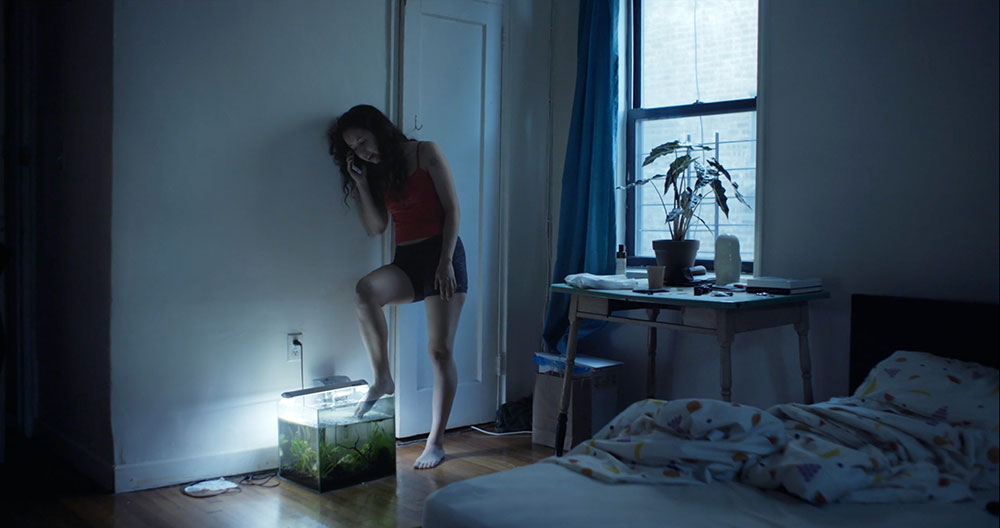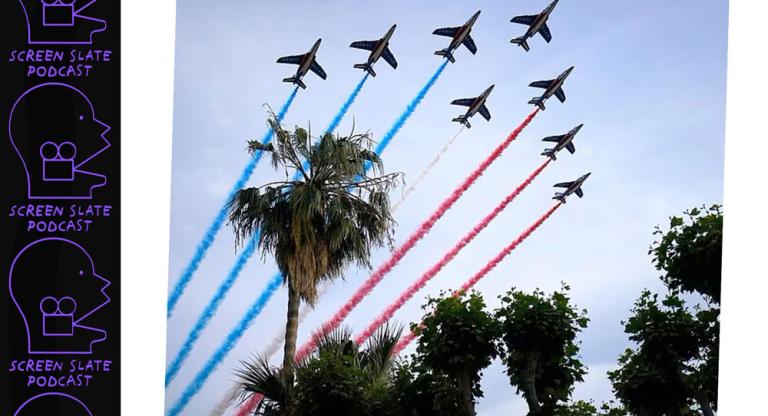“It was super special in the moment. But it wasn’t significant.” So says a character in Kit Zauhar’s first feature, describing a one-night stand in a way Actual People (2021) dares the viewer to apply to the film itself. Zauhar’s film catalogues how insignificant moments tumble into each other and add up to burnout, failure, and a kind of free-floating generational awkwardness among college seniors in New York on the verge of graduation. Shot in August 2019, Zauhar’s accomplished, grungy film has been playing in festivals around the world and is now being distributed by Factory 25.
Zauhar plays the Asian-American lead, Riley, in this film she wrote and directed. Riley is someone who has become unlovable, torquing between failure in college, drunken hook-ups, and microaggressed insults that make the film something of cross between a negative Lady Bird (2017) and a co-ed Frownland (2007). Actual People has a relentless quality quite different from most coming-of-age movies. Befitting the time in which it was made, it is not wistful. Zauhar provides no explanation for Riley’s plight, which we are plunged into from the beginning. I spoke with Zauhar by phone ahead of the film’s New York premiere at BAMcinemaFest. Our conversation has been edited for length and clarity.
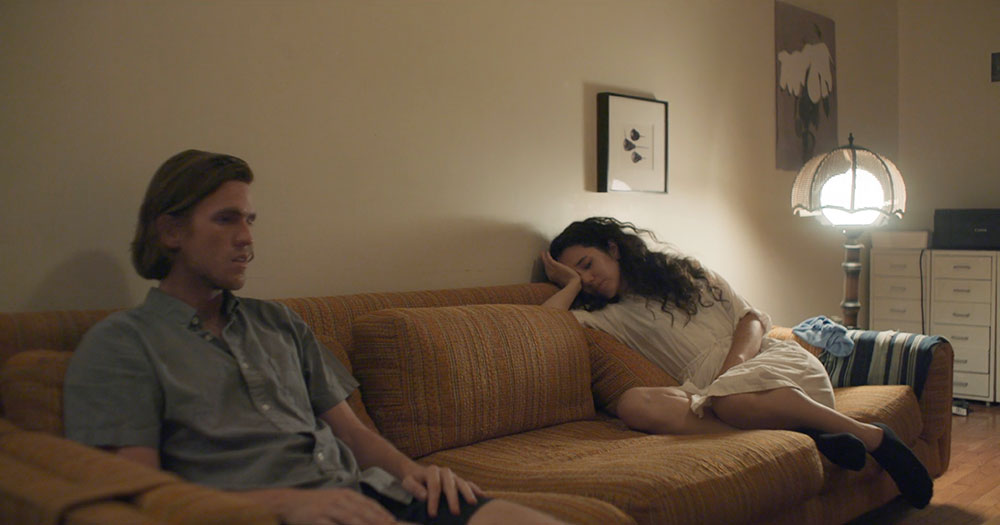
A. S. Hamrah: In this film you've resuscitated mumblecore. It’s kind of a cringe fest, and it's something like Tiny Furniture [2010]. But at the same time, it’s wholly its own thing. When you set out to make Actual People, what was it exactly that you were going for?
Kit Zauhar: The whole basis of making my first feature in general was that I didn't have a lot of money. I didn't have connections to production companies. I basically knew no one was going to give me money for this film. And I love mumblecore movies a lot. My films are based on conversation. I looked at those films for inspiration, because they were doing what I was trying to do, which was: How do I make an engaging film, with a lot of good conversation, a lot of dialogue, and not a lot of money? And yet mumblecore has always been sort of a strange genre to put myself into, to think about myself within that context, because for the most part, it’s a bunch of nerdy white dudes. But maybe that's why I also wanted to engage with it, because through my making a film with similar aspects and narrative traditions that I was drawing from I could . . . I think resuscitate is an interesting word. I don't know if I resuscitate mumblecore but maybe I remixed it. Maybe that’s the word.
ASH: Did you know from the beginning that you were going to star in the film as well as write and direct it, and edit it?
KZ: Yes. But I didn't edit all of it. My friend Kira Dane took over after I did all the selects, and she made it the watchable thing that it is. But yes, I always knew I was going to star in it, because—like in Tiny Furniture—I wanted my little sister to be in it. I always thought my sister Vivian was a really fantastic performer and personality. And I think she just has a level of self-awareness and at the same time this lack of self-consciousness that makes for really good acting.
ASH: You get to sell out your sister in the film, and then you get into a fistfight with her. Was that part of the reason you wanted your sister to play that part? So you could beat on her?
KZ: No, no, not at all. That's really just in the story. I would never do something like that to my little sister. The things I know about her that my parents don't know, or anyone knows, that’s a sacred bond. And I think I tease in the film how that sacred bond stays even through betrayal.
ASH: Within the first ten or so minutes in the film, the character that you play, Riley, is in bed with a dude and she goes off on a monologue. And one of the things she says is about a prior relationship. She's just been dumped. “Maybe in retrospect, I felt uncomfortable, but in the moment, I don't remember feeling anything but fine,” she says. That seems to sum up the whole narrative strategy of the film, that everything that happens in it is uncomfortable and wrong, but no one really seems aware of that, or at least Riley, the lead character, doesn't notice. Were you laying out the strategy of the film in that speech?
KZ: No, I wasn't. That's a great observation-slash-analysis of the film. Something I was interested in, and something that I talked a lot about with my editor and friend, Kira, was the lack of accountability in the film. The idea that no one is really taking control or has any accountability for anything that's happening is the big thing of the film. I hope the audience is thinking, “Oh my God, I need someone to take some kind of control here, to have some small sort of self-awareness at least.”
ASH: When you were writing Actual People did you realize you wanted to play this kind of unlovable person who was just losing everything in her life, one thing after another?
KZ: The character’s a little bit based off of who I was at that time in my life. I don't think I'm like that anymore. But I mean, in general, I just don't find anything interesting about likable characters. I don't think I ever seek to write likable characters. And I don't seek out films about likable people. People watch films to see some aspect of their humanity that they are grappling with or they're curious about or fascinated with. They want to see how that plays out. And I think very rarely are those characteristics that are pleasant or situations that are pleasant.
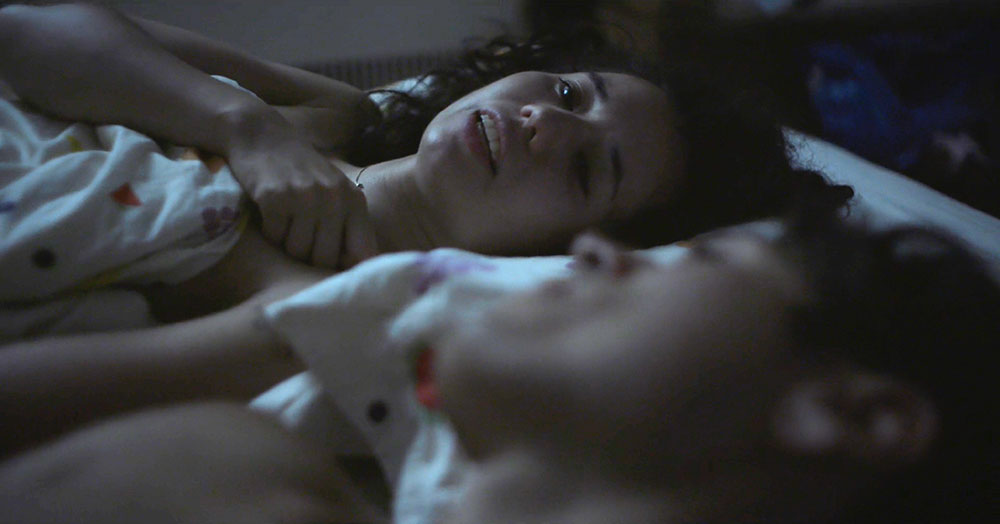
ASH: Yes, that's clear in the film. I think it’s the only film I've ever seen in which the main character has a yeast infection throughout the entire movie. I guess you didn't start out to be a filmmaker. You went to Columbia first for journalism?
KZ: Nonfiction writing. I went to NYU for undergrad for film and then I was going to Columbia for my MFA in nonfiction.
ASH: How did you make the decision to switch out of that and go back to film?
KZ: After I went to NYU, I just felt like my film career was not really going anywhere. I was doing some auditions, I was acting in some student films for money and nothing, just nothing was happening. So I thought I needed to get out of that and do something else. And I was thinking, well, maybe I can't make a film. But I can write a book of essays. And that's what's gonna get me money. And so I applied to Columbia.
ASH: You left filmmaking because you were under the impression that there was money in essay writing?
KZ: Yes. I mean, I was delusional. I guess my thinking was, Well, writing doesn't require a whole team of people that I also have to pay and take care of. But like, of course, no, I was completely delusional. And so I applied to Columbia for nonfiction and I got in. I went for a year for the MFA. And I quickly realized, this program is not for me. I mean, I thought a lot of the people there were insanely wack. And by wack I mean, like, clearly out of their minds. Multiple people I was in the program with had crazy mental breakdowns while I was there. It was sort of a mess, even compared to me. And then, when it switched to virtual because of the pandemic, Columbia was like, well, we're not going to grant anyone a leave of absence or anything. So I was just like, Okay, fuck you guys. You're not giving me a tuition break this semester. That kind of sucks. So I'm going to leave and never come back. I had shot Actual People right before I got to Columbia, sort of as a deadline for myself, because I was like, Well, I can't shoot anything after I get to Columbia. So while I was at Columbia, and during the pandemic, I was working on Actual People. And, you know, I think the word resuscitate is sticking in my head, because I think once you shoot a film, and it's in the can, it has to be resuscitated and resuscitated again and again. You have to keep pumping it full of life, because it is still this Frankenstein, half-dead, half-alive thing until you really get it to a place where it's vibrant. And it was not vibrant for an incredibly long time. I spent a lot of the pandemic doing that, getting it to that place.
ASH: One thing that comes through in your performance in the film is that while the character you're playing describes herself as “beyond desperate”—and this is a person who's completely beaten down—your performance is not beaten down at all. It's a very vibrant performance. How did you construct that?
KZ: I think when one is beaten down, there is almost a manic overcompensation of energy. A lot of people, when they're really depressed are actually quite manic, they have a lot of energy. They're bouncing off the walls because they're trying to find something. That's sort of how I approached it. I was also trying to— I'm always trying to work against the film-school tropes that I grew up with and found at NYU, one of which being the melancholic woman full of malaise, lounging around being sad. I was trying to find ways to counteract those kinds of characters, those archetypes. Another thing being the cigarette thing, that was very intentional, because in every fucking student film, everyone is chainsmoking, like they're in a French café in the 1920s or something. It's ridiculous. And so I wanted to counteract that by having the main character be a young woman in the big city who does not smoke cigarettes and makes it a point to not smoke cigarettes.
ASH: That's interesting. Another of her characteristics is that twice in the film she tells people she doesn't mind being offended. I don't think most characters in films made at the level of Actual People would say something like that. What does she mean when she says she doesn't mind being offended?
KZ: Yeah, that's something some other people have pointed out. It has to do with something that I've learned growing up, which is that honesty is not always the best policy. And I don't mean lying. I mean that withholding can be a form of kindness. But I think a lot of young people, including me, even sometimes now, I felt that I deserved to know everything that anyone was ever thinking about me, because I'm the person it's about. I think when you're young, you want to know everything, you want to hear everything, you want everything sort of unfiltered. And I think that's where Riley’s at. She thinks honesty is a form of kindness and a form of openness. And so she thinks maybe that having people speak bluntly, honestly with her constantly is how she's going to be able to define herself. The only moments where you see Riley by herself, even then she's texting or calling someone. There isn't really a respite from other people in this film. This idea of defining herself through others permeates every facet of her anxiety, her social interactions, everything.
ASH: You mention texting. One thing that I thought was noteworthy in the film, something that I haven't seen before, is the obvious difference between the normal acting of the characters and the way they sound when they are texting and we hear the texts in voiceover. I hate seeing texts on screen, and that was an original way to deal with the ubiquity of texting in life today. How did you determine what the text-reading voice would be?
KZ: I hate seeing texts on screen too. I wanted it to feel the way that a person's facial expression looks while they're texting, which is often neutral and zoned out, even if they’re internally feeling great emotion. Regardless of the language you’re typing out, texting face is kind of a mask, it’s blank. I wanted the voices to reflect that. I hate when texts pop up on screen with that little graphic and it's like boop bloop and it has a sound effect. It's corny, and I wanted a way around that. Also, I think those are moments of rest when nothing particularly quote-unquote cringe is happening. And so that gives the audience a moment to breathe, to resettle.
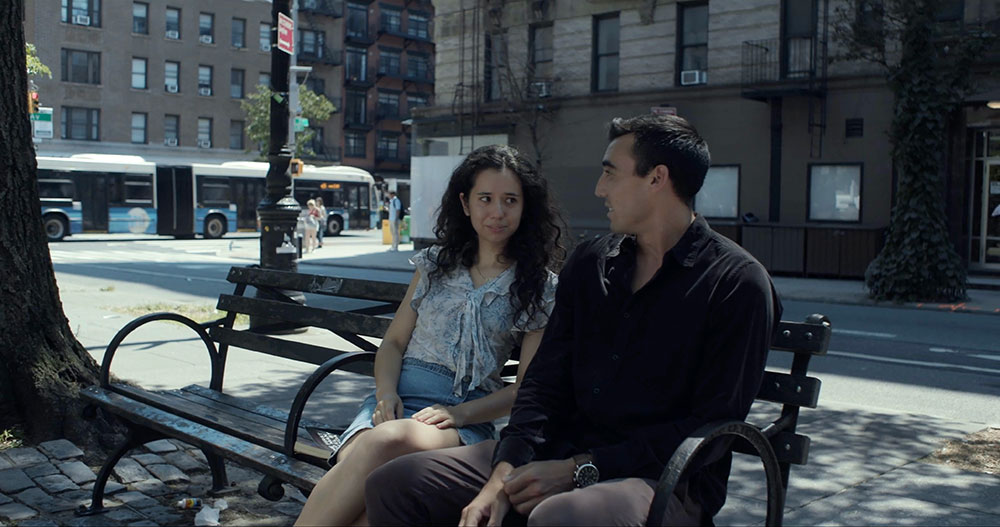
ASH: It's hard not to notice that one scene of respite where Riley appears on the street, sitting on a bench, she's reading Miranda July’s novel . . .
KZ: It's The First Bad Man, yes.
ASH: I was wondering why you chose that? Is your work related to hers, do you think?
KZ: She’s a big inspiration for me, but I wish there was a deeper meaning behind the book. Something different was supposed to be happening in the scene. She was going to be working on her laptop in a café, but then the café we were going to use bailed last minute. And so that was just the book I was reading, just literally the book I had in my bag that day. I think it works, though. It seemed like every young woman I knew was reading it. So it felt kind of fitting in that sense, a time capsule.
ASH: There's a great scene when Riley goes to Philadelphia, her hometown, and at a party encounters a young woman she used to know. And she says to Riley, “Is your life like a TV show now?” Which she thinks because she only sees Riley in New York on social media. And of course, Riley’s life is nothing like a TV show. This seems like a big moment in the film. The way it’s shot, Riley and the young woman mirror each other and fake smile, and it’s a war of the teeth. There is this moment of recognition. Then, Riley, who is drunk, admits for the first time that she’s having some kind of breakdown, and she just blurts. Why does that happen there?
KZ: My friend Melanie Kleid plays that part. I think she’s great in it. The thing is, when I went to college in New York, a lot of people from my high school stayed in Philly. And there was this sort of idea about New York that was exacerbated by TV shows like Girls. When I first got to college in 2013 that was seen as kind of the pinnacle of life, and it was this big hit. There was really this feeling that New York was so much more glamorous and exciting than Philly. I mean, there were people from Philly who literally asked me questions like “Do you see celebrities all the time?” My senior year of college I was having a mental breakdown and had no idea what to do with my life, and I was also very over New York. But whenever I would go back to Philly, people would say, “Aren't you supposed to be in New York right now? What are you doing here?” And it was mortifying, you know, because of how I felt about myself and what I was doing.
ASH: So you're working on a new film now?
KZ: Yes, my new film is called This Closeness. It's a chamber piece, not a big cast film like Actual People. I'm acting in it again and directing. It takes place almost entirely in one location. And it's about a couple, played by me and Zane Pais, who stay in an AirBnB with a reclusive host. He's sort of a proto-incel type. And it's about the changing dynamics between these three people over the course of the weekend, the ways in which they start to become closer to each other and repel each other. It's a lot about territory and intimacy.
ASH: Are you shooting it now?
KZ: I’m shooting it in September.
ASH: It’s another work of autofiction?
KZ: No, it's not. I am done with autofiction for the time being. I don't think my life or my personality is that interesting. I think writing autofiction involves a level of narcissism that I think is good sometimes to let yourself fall into, but it's also good to pick yourself back up out of that, dust yourself off, and try to do something else.
ASH: So you are not playing yourself. A lot of people must ask you about being yourself on screen, what that’s like.
KZ: That is a question I get asked a lot at Q&As. The person assumes everything that happened in Actual People happened to me, and that I am exactly like the person on screen. And, you know, there's neither total truth or total falsehood in that. I’ve been listening to a lot of Sheila Heti on podcasts, someone who’s famously known for her autofiction, and she talks about her process. And it got me thinking about how I think about Actual People now, and how I think about seeing myself on screen. And so I think the best metaphor I’ve come up with is that it's like shouting into a cave, then hearing the echo back. That echo is my film, my performance, and to say that that voice is mine is both true and false. It's its own entity now, its own presence in the world. But to say that that voice is not mine, it's its own thing entirely, is also false. It's both for me and not for me at all. It's for the world and also not for the world. And I think that's also a good way to look at my work as I move forward, because I want to keep working on stuff that I enjoy making and enjoy watching. I try not to think too much about how other people are going to view it or talk about it or see me. I want to try and keep it like that voice in the cave. But let's see how that goes.
Actual People screens this Saturday, June 25, at BAM as part of BAMcinemaFest.
